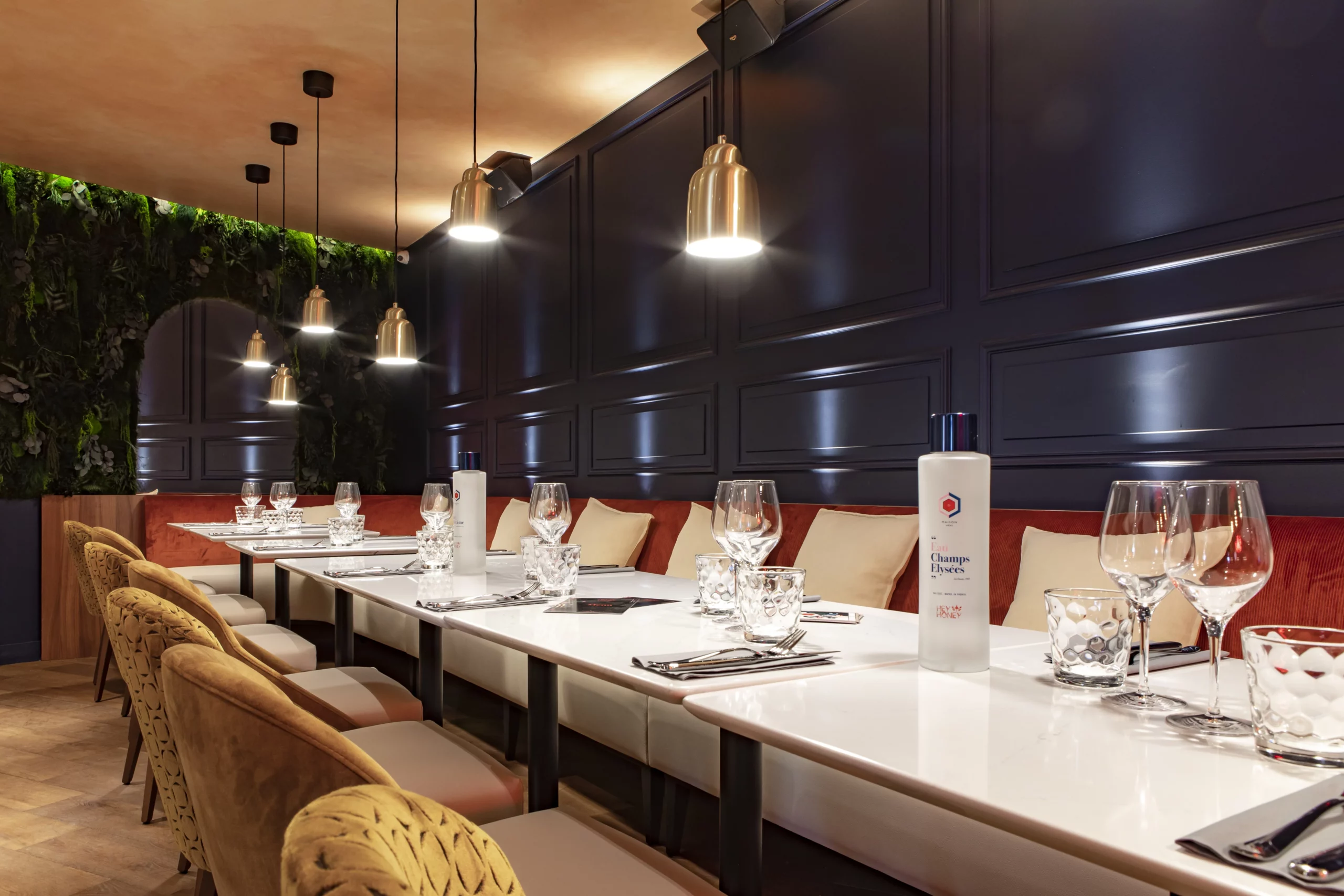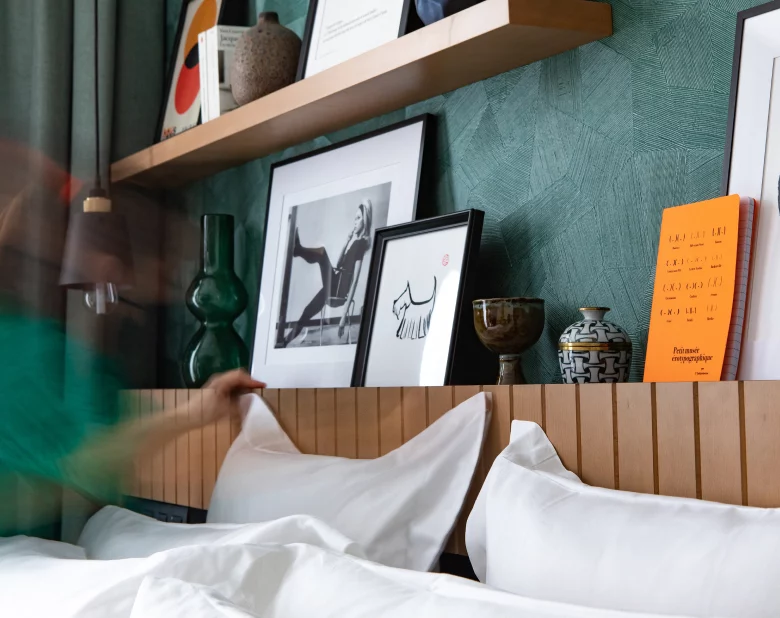Sustainable hotel: when hospitality embraces short supply chains
Relying on local stakeholders for a more human and responsible experience
Reading Time: 6 Minutes

Key Takeaways
Quick Facts About the Article
of collective accommodation in France is Green Key certified
of travellers surveyed said they wanted to travel more sustainably in 2023
increase in searches on the theme of “sustainable travel” between 2020 and 2023
In Brief
In This Article
What if sustainability was not only about labels or eco-friendly materials, but also — and above all — about the connections forged with its immediate environment?
In a world where travellers seek authenticity and investors examine the viability of models, the sustainable hotel stands out for its ability to embed itself within its neighbourhood. This strategic choice is based on a simple yet powerful principle: working daily with local stakeholders — shopkeepers, artisans, and producers — to create a living, responsible, and deeply rooted hospitality.
This model does more than improve a place’s image or atmosphere: it generates tangible economic benefits, strengthens operational agility, and offers a true driver of loyalty. At the scale of a hotel asset, it changes everything.
1. Why is the sustainable hotel a model for the future?
Hospitality in search of meaning
It appeals to travellers seeking meaning, attracts talent eager to engage in this approach, and reassures investors concerned with impact and profitability.
It appeals to travellers in search of meaning, attracts talent eager to engage in this approach, and reassures investors concerned with impact and profitability.
In this dynamic, short supply chains are a winning strategy on all fronts: economic, relational, and operational.
By prioritising neighbourhood stakeholders, the hotel reduces its costs, simplifies its logistics, strengthens its authenticity… and creates an experience that is both local and responsible.

Want to know the latest trends, our upcoming projects, or private events?
2. More human hospitality, a more resilient model
A Strategic Vision for Investors
Neighbourhood roots
Working with local artisans is not only an ethical choice: it is a smart operational strategy, as it generates numerous concrete benefits:
- Less logistical dependency, ensuring greater responsiveness in the event of disruptions.
- Controlled costs, with reduced transport, stock, and ancillary expenses.
- Mutual loyalty with partners who support the hotel on a daily basis.
A value-creation lever for investors
For project developers, family offices, or funds specialising in hotel real estate, this model offers differentiating advantages:
- Enhances the asset’s value through its appeal to an audience sensitive to local engagement.
- Meets ESG criteria, increasingly scrutinised during audits and due diligence processes.
- Anticipates future sustainability regulations while telling a compelling story.
Lower costs, greater value
Contrary to popular belief, this approach often costs less than centralised sourcing.
- Little to no delivery costs,
- Less stock to manage,
- Reduced carbon footprint.
Suppliers are also more available, more flexible, and ready to adapt to the hotel’s specific needs. This creates a virtuous, agile, and competitive system. This model not only helps reduce transport costs and limit deliveries, but also forge lasting connections with the hotel’s neighbours.
3. Maison Mère: a sustainable hotel rooted in its neighbourhood
An Urban Resort in the Heart of the 9th Arrondissement
Maison Mère, a 4-star hotel located in Paris’ 9th arrondissement, was designed as an urban resort. Owned by the Temimi family for several generations, it was awarded Best of the Best by TripAdvisor in 2024, a testament to its uniqueness and the recognition from its guests.

Short supply chains for authentic hospitality
At Maison Mère, every day, the establishment collaborates with suppliers located less than a 10-minute walk away:
- Les Fleurs en Folie, a local florist creating bouquets for the lobby and guest rooms.
- Le Pain Retrouvé , a neighbourhood bakery supplying the hotel’s restaurant, Nectar.
- Taka & Vermo, a cheesemonger from the nearby street providing cheese boards for the restaurant.
A warm atmosphere that makes all the difference
By integrating these local stakeholders into its ecosystem, Maison Mère creates a lively, warm, and typically Parisian atmosphere.
This coherence between the place and its surroundings transforms the hotel experience into a true local immersion — a powerful asset for retaining guests who value authenticity.
Moon Hospitality’s support for creating a sustainable hotel
Tailored Support to Ensure the Success of Your Hotel Project
At Moon Hospitality, we observe that hotels working with local neighbourhood stakeholders benefit from a triple advantage:
- An optimised cost structure,
- An enhanced guest experience,
- Strong neighbourhood roots, fostering brand awareness and loyalty.
In a context where differentiation relies on coherence, transparency, and impact, hotels that commit locally clearly stand out. The sustainable hotel model, based on short supply chains and neighbourhood roots, offers a relevant response to the current expectations of both travellers and investors.
In a context where differentiation relies on coherence, transparency, and impact, hotels that commit locally clearly stand out. The sustainable hotel model, based on short supply chains and neighbourhood roots, offers a relevant response to the current expectations of both travellers and investors.
We firmly believe that hospitality can only be sustainable if it is human, local, and vibrant. This philosophy guides our design, operations, and partnership choices.
Creating connections with the neighbourhood goes far beyond “short supply chains”: it means embedding the hotel within a virtuous, resilient, and desirable ecosystem.
Want to know more? Contact contact@moonh.co to discover our various projects.


